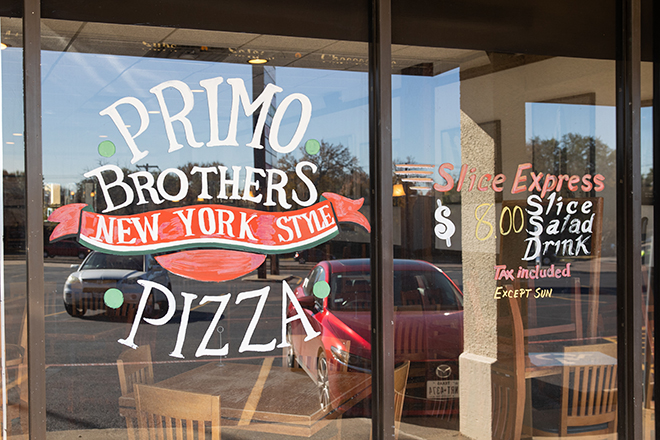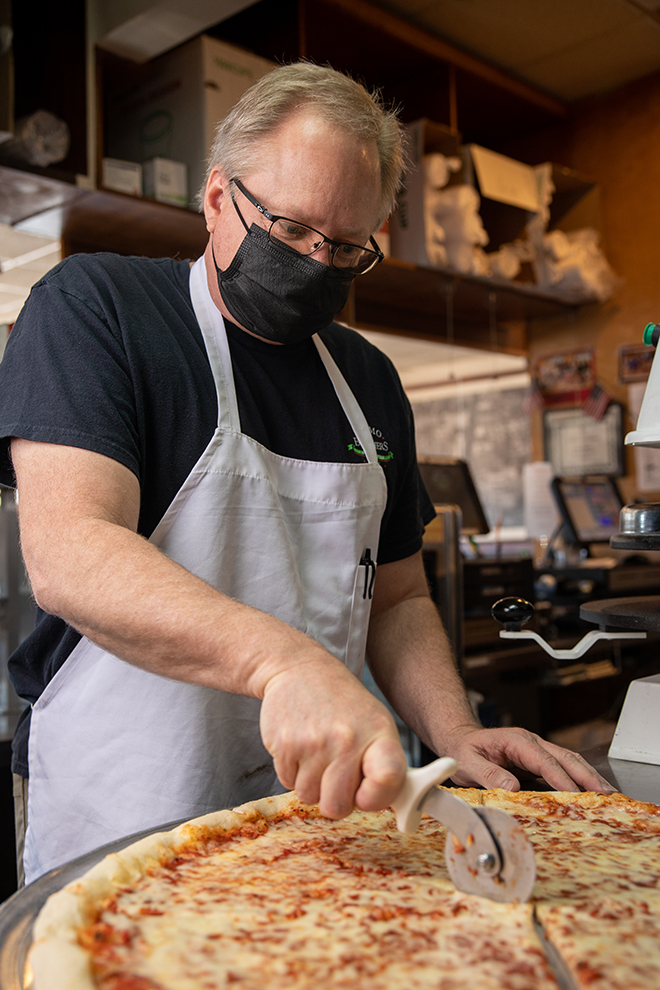
Photography by Gabriel Cano
New York-style pizzeria Primo Brothers Pizza had to get creative to keep doors open in the neighborhood as they had been since 1982.
Just before COVID, owner Brent Linsteadt says the restaurant rolled out a system to facilitate mobile, online, contactless and curbside orders through a Primo Brothers app. He said over 800 customers were using the app by the time the pandemic set in.
“There’s just too many restaurants closed down because they just weren’t ready,” Linsteadt says. “They didn’t have a plan or they couldn’t adapt.”
This to-go system was pivotal as Primo Brothers started to lose significant dine-in business.
Texas Instruments, which is headquartered less than two miles from the restaurant, used to flood Primo Brothers daily for lunch, Linsteadt says. But when the company began working from home, the restaurant lost between four and five thousands dollars a week.
Linsteadt says the restaurant began opening on days they were normally closed to make up for lost revenue. Opening on Sundays from 4:30-8:30 p.m. brought in $1,100-$1,200.
Primo Brothers never closed its doors. Linsteadt says he kept labor and utility costs down by opening later, when orders were higher.
The neighborhood stepped in to support the restaurant when sales were on the decline, Linsteadt says. Just as Primo Brothers had sponsored Lake Highlands High School for past Wrangler Nights, the Wildcats offered to sponsor Primo Brothers instead and let the restaurant keep all sales.
“That was really good support from the community,” he says.
Dine-in picked up in the fall, but the restaurant was sparse with a small capacity and spaced out tables to accommodate social distancing. The occasional customer complained about waiting for a seat when the restaurant was at capacity. Linsteadt would give them the option to order take out instead.
“I would just be plain to them and say ‘You know what, I’m not going to apologize for being busy,’” he says.
Two burglaries last year added insult to injury to the struggle of the pandemic. Each break-in cost the restaurant $800-$1,000 to replace broken glass and whatever was taken, Linsteadt says.
After the second burglary took place in August, Linsteadt alerted the community with photos of the perpetrator via a Primo Brothers Facebook post.
“It seemed like the sales actually picked up after that,” he says.
Linsteadt has plans to expand with a second, 1,000-square-foot Primo Brothers restaurant that was expected to open in mid-December in Sachse.
“In times like this, it’s not time to go hide in the corner, it’s time to get aggressive,” he says. “Otherwise, you won’t survive.”






